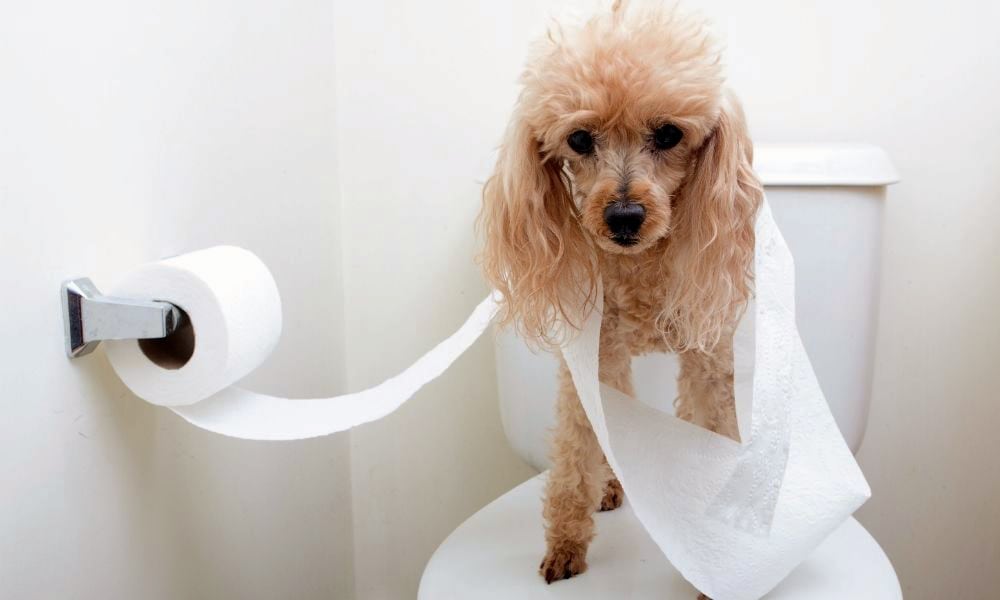Vital Points Regarding Flushing Animal Waste Down the Toilet
Vital Points Regarding Flushing Animal Waste Down the Toilet
Blog Article
We've encountered this post involving Why you should never flush dog poop down the toilet below on the net and figured it made good sense to discuss it with you over here.

When it comes to dealing with waste, particularly animal waste, lots of people often turn to the hassle-free alternative of flushing it down the toilet. Nonetheless, this relatively very easy solution can have major effects for the setting and public health. In this write-up, we'll discover why flushing pet waste down the commode is a poor idea and provide different methods for appropriate disposal.
Intro
Correct waste disposal is critical for keeping environmental sustainability and public health. While it may appear harmless to flush animal waste down the commode, it can bring about numerous concerns, both for the atmosphere and human wellness.
Dangers of flushing pet waste
Ecological influence
Purging pet waste introduces hazardous microorganisms and microorganisms into waterways, which can negatively impact aquatic ecological communities. These microorganisms can pollute water resources and harm aquatic life, interfering with delicate environments.
Public health issues
Pet waste has unsafe germs such as E. coli and Salmonella, which can posture significant health and wellness threats to humans. Purging pet waste down the commode can pollute water products, bring about the spread of illness and infections.
Alternatives to flushing
Rather than flushing animal waste down the commode, there are several different disposal techniques that are more environmentally friendly and sanitary.
Composting
Composting pet waste is an eco-friendly means to dispose of it. By composting, organic matter is broken down right into nutrient-rich soil, which can be utilized to fertilize gardens and plants.
Land fill disposal
Disposing of pet waste in a land fill is an additional option. While not as environmentally friendly as composting, it is a safer option to flushing, as it stops the contamination of water sources.
Family pet garbage disposal systems
There are specialized pet garbage disposal systems offered that safely and hygienically deal with animal waste. These systems typically use enzymes to break down waste and get rid of smells.
Actions to appropriate pet waste disposal
To guarantee proper disposal of pet waste, follow these actions:
Scooping and nabbing waste
Consistently scoop and bag pet waste utilizing biodegradable bags. This stops waste from infecting the atmosphere.
Utilizing assigned waste containers
Dispose of bagged pet waste in assigned waste bins, such as garden compost containers or land fill bins. Prevent flushing it down the toilet in all expenses.
Cleaning can and family pet areas frequently
Routinely clean can and pet dog areas to avoid the build-up of waste and bacteria. Use pet-safe cleaning products to maintain health.
Advantages of correct disposal techniques
Adopting proper disposal techniques for pet waste provides a number of benefits:
Minimized environmental pollution
Appropriate disposal techniques reduce the danger of environmental pollution, securing rivers and ecosystems from contamination
Decreased risk of water contamination.
By staying clear of flushing pet waste down the toilet, the threat of water contamination is dramatically lowered, protecting public health.
Enhanced sanitation and hygiene
Appropriate disposal methods advertise much better hygiene and health, creating a safer environment for both people and animals.
Conclusion
In conclusion, flushing pet waste down the toilet is hazardous to the environment and public health. By adopting different disposal methods and adhering to proper waste monitoring methods, we can decrease the adverse impact of pet waste and contribute to a cleaner, much healthier earth.
What To Do With Dog Poo – The Do's And Don'ts Of Disposing Of Faeces
Dog poo bins
Some councils provide dedicated dog waste bins in popular dog-walking areas that can take dog poo that has been bagged but you can legally dispose of dog waste in any public litter bin, as long as it is securely bagged. This also applies to your wheelie bin at home.
Do not flush
Water companies do not recommend flushing dog faeces down the toilet because certain parasites can survive the water processing treatment and are potentially harmful to humans. You should also never consider flushing dog poo that has been bagged down the toilet as the bags will not break down and instead create severe blockages in the sewage system.
In the woods
The Forestry Commission promotes a ‘stick and flick’ method for dealing with waste in the woods. This means finding a stick and using it to flick any poo from off the path so that it is out of the way of other walkers. You could also bury it as long as it is not in an area where there might be livestock.
Livestock
Parasites found in dog poo can be transmitted to livestock if they inadvertently eat infected faeces that has been left on grazing land. This could result in the death of sheep or abortion in cattle so you should always make sure you pick up your dog’s waste in fields where livestock could be present.

Routinely clean can and pet dog areas to avoid the build-up of waste and bacteria. Use pet-safe cleaning products to maintain health.
Advantages of correct disposal techniques
Adopting proper disposal techniques for pet waste provides a number of benefits:
Minimized environmental pollution
Appropriate disposal techniques reduce the danger of environmental pollution, securing rivers and ecosystems from contamination
Decreased risk of water contamination.
By staying clear of flushing pet waste down the toilet, the threat of water contamination is dramatically lowered, protecting public health.
Enhanced sanitation and hygiene
Appropriate disposal methods advertise much better hygiene and health, creating a safer environment for both people and animals.
Conclusion
In conclusion, flushing pet waste down the toilet is hazardous to the environment and public health. By adopting different disposal methods and adhering to proper waste monitoring methods, we can decrease the adverse impact of pet waste and contribute to a cleaner, much healthier earth.
What To Do With Dog Poo – The Do's And Don'ts Of Disposing Of Faeces
Dog poo bins
Some councils provide dedicated dog waste bins in popular dog-walking areas that can take dog poo that has been bagged but you can legally dispose of dog waste in any public litter bin, as long as it is securely bagged. This also applies to your wheelie bin at home.
Do not flush
Water companies do not recommend flushing dog faeces down the toilet because certain parasites can survive the water processing treatment and are potentially harmful to humans. You should also never consider flushing dog poo that has been bagged down the toilet as the bags will not break down and instead create severe blockages in the sewage system.
In the woods
The Forestry Commission promotes a ‘stick and flick’ method for dealing with waste in the woods. This means finding a stick and using it to flick any poo from off the path so that it is out of the way of other walkers. You could also bury it as long as it is not in an area where there might be livestock.
Livestock
Parasites found in dog poo can be transmitted to livestock if they inadvertently eat infected faeces that has been left on grazing land. This could result in the death of sheep or abortion in cattle so you should always make sure you pick up your dog’s waste in fields where livestock could be present.

I hope you enjoyed reading our piece on 10 Things You Should Never Flush Down The Toilet. Thanks for taking time to read through our blog. Please take the opportunity to promote this write-up if you enjoyed it. Thank you for taking the time to read it.
Visit Page Report this page